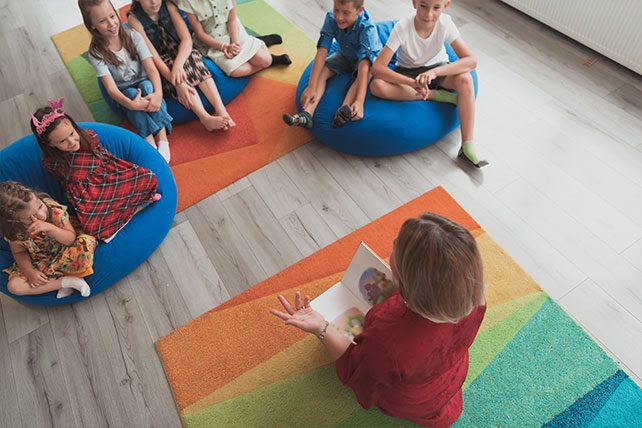Need tips for kidmin storytelling? Here are insider insights from a children’s ministry pro.
Awhile back, I served as a host in our kidmin program. Stage hosts can wear several hats, and I was wearing the Storyteller’s Assistant hat. My job was sock puppeteer. As the storyteller told the Bible lesson, I was behind a table with sock puppets resembling Cain and Abel.
I thought the same thing you might be thinking. “Sock puppets?” Unless we’re talking about “The Muppets,” I’m generally not a fan of puppets. But it was soon apparent that these puppets connected with the young audience. Kids were laughing, and I was having way more fun than I expected.
The Pull of KidMin Storytelling
At that moment, I felt the pull. A voice in my head said, “I could steal the show right now.” Hosts often feel this when they get on stage and help with kidmin storytelling. It feels good to be funny and get the crowd excited and laughing. In fact, it can go to our heads, and the ego monster can take over.
That day, getting a laugh wasn’t my job. My job was to use humor to help the storyteller share a great Bible lesson. In a second, I could have derailed that teaching time. I could have made it about getting the laugh, and it would have worked. But it also would have been to the detriment of kids hearing what God says about honesty.
Considerations for KidMin Storytelling
Before your next line or stage action, ask yourself these three quick questions:
1. Why am I about to say or do this?
First up, this question checks your motivation. It helps you figure out if what you’re about to say or do is about the story or about you.

